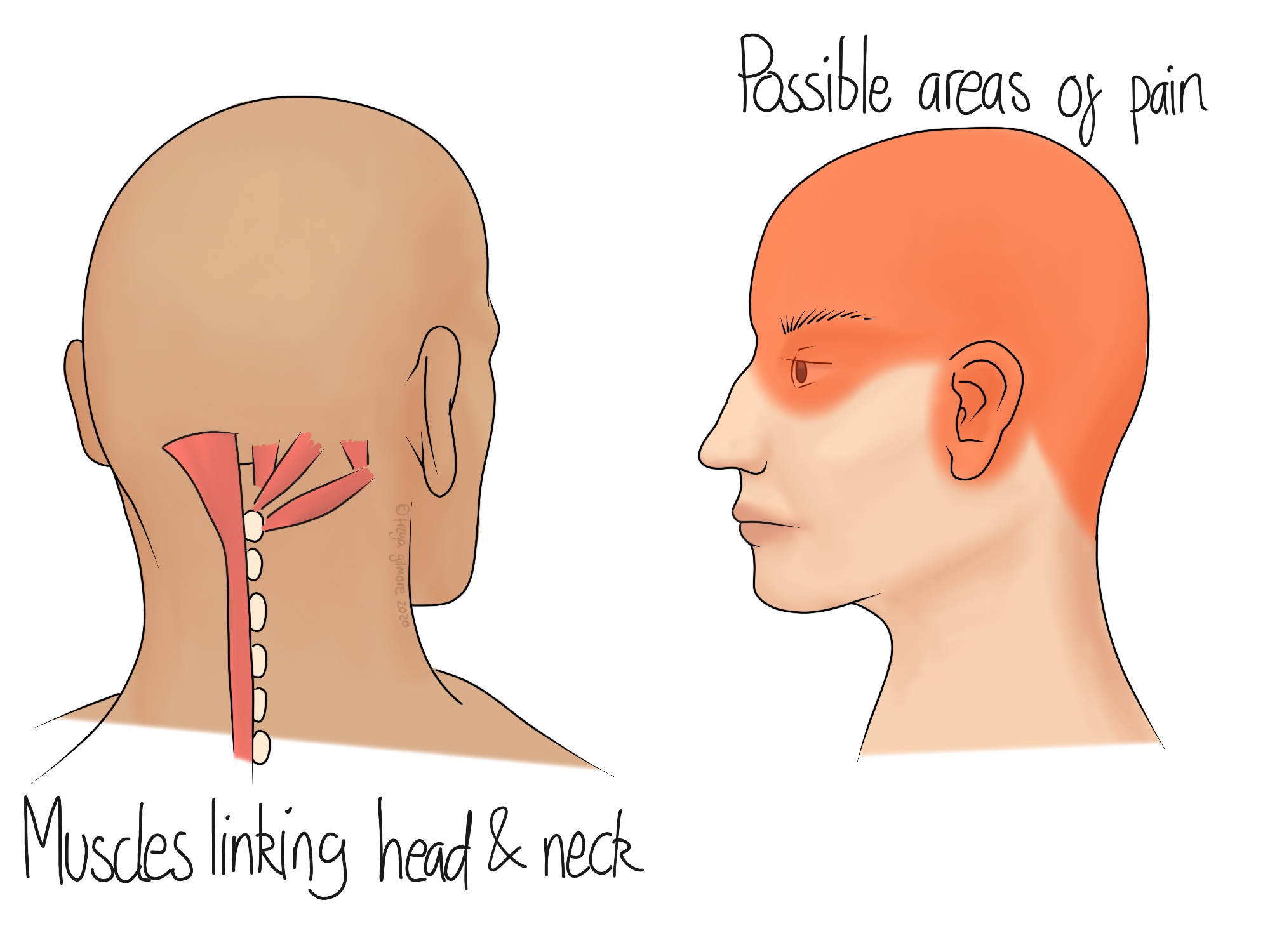19 August 2020
Cervicogenic Headaches

Headaches that originate in the neck are called Cervicogenic Headaches (CGH): literally meaning "from the neck". You may or may not feel symptoms in the neck, but if a nerve or muscle in the neck is the root cause of the headache, we classify it as such.

Identifying a Cervicogenic Headache
Differentiating this kind of headache from something like a migraine is important for management. Characteristics of this kind of headache include:
- One sided, or one side dominant headache
- Ache over the top of head and upper face
- No aura, nausea, or vomiting
- Pain may start in the neck
Muscular causes
Some of the muscles commonly associated with cervicogenic headaches are the suboccipitals. These muscles sit around the joints that connect the skull to the neck. They're very small but can still cause significant discomfort. They may pull on the soft tissues of the scalp when they are tight, and sometimes a CGH follows this direction of tension.
The role of these muscles is to lift your head. There is a relationship between prolonged postures that strain these muscles and neck pain. Headaches like this could therefore be predisposed by sitting in one position that stresses these small muscles.
Even if the original cause is not muscular, the neck muscles will often tighten up in response to pain. You may notice that self massage helps to relieve symptoms, but if it doesn't resolve the headache, there may be another cause.
Neurological causes: cervicogenic headaches from referred pain
There are a couple of ways in which a nerve can cause pain to be felt in the "wrong" place. The first is something like sciatica, where a nerve is irritated in one place and the symptoms are felt somewhere along the nerve. The second is referred pain.
Referred pain is where the brain receives a "pain signal" from a nerve, and makes an educated guess at where the exact cause is. This can happen with cervicogenic headaches. A few nerves supply the skin of the face and head. If one nerve is irritated, the brain could interpret that pain as having come from anywhere in that nerve's territory. So if a disc irritated a nerve in the neck, the brain might mistake that as a problem in the head. This manifests as a headache.
It sounds strange but you may have heard of this process before. It's the same reason that some people having heart attacks feel pain in their arm or jaw.
Other causes
As mentioned above, if something irritates or alerts a nerve, it can cause a headache. Along with discs, other structures in the neck may cause CGH. Ligaments are another example, and it seems that people who have experienced whiplash in the past are more predisposed to this kind of headache.
If you think you might suffer from cervicogenic headaches, make an appointment at Ilminster Osteopathy today.
Learn more
At Ilminster Osteopathy my goal is to help people achieve their goals whatever they may be. Watch our video to find out more.

